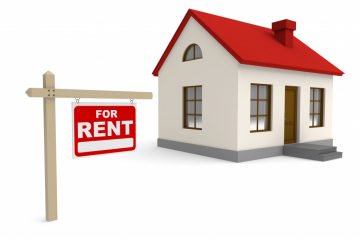It is a harsh fact, but many young people today will never own their own home in this country, despite it being the aspiration of most.
Getting onto the property ladder, buying a small house and gradually moving to a nicer area and bigger home is the dream for the majority of people.
In the early 1980s, just half of the population owned their own home. The other half rented – 30% in social housing from their local council and 20% from private landlords.
When Margaret Thatcher introduced Right to Buy, those living in council homes could buy their properties and subsequently saw the value of their discounted purchases increase rapidly. This turned housing into an investment, rather than shelter and a stable lifestyle. However, councils stopped building houses, partly due to financial difficulties, but also because more people were interested in buying than renting.
Since then, we’ve landed in a housing crisis. Houses are now extortionate in many parts of the country and wage growth has not kept pace with inflation, or increased by as much as house prices. The young, suffering the most, have seen their earnings and borrowing allowances hit the hardest.
At the same time, most new private-sector jobs are in London, where house prices have spiralled.

Why are Homes so Expensive?
In July, the average UK house price was £282,000, according to the Office for National Statistics (ONS). For Londoners, this is measly – the average house price in the capital is currently £525,000.
However, the average UK worker, who earns £24,648 per year, including bonuses, can only afford a house costing £110,000 with a mortgage worth 4.5 times their salary. Finding a job that pays this and a home that costs this little is tough. Add in saving for a deposit while paying market rents, and the task is virtually impossible.
Then there’s the fact that Britain is not building enough homes to meet the demand. This is partly caused by a brick shortage that began before the recession and a lack of skill in the industry. British workers often don’t aspire to be builders and we’re not bringing in skilled workers from abroad.
But throughout this crisis, there are many people that profit from rising house prices. Private companies land bank so that they can hold land and see its price increase; this also pushes up house prices.
The greatest expansion in housing is within the private rental sector, which is the least likely area to increase homeownership in Britain. Young people cannot save enough money for a deposit and the main cause of this is expensive rents.
But if you’re a landlord, keeping people renting is a good thing. Investors can make good profits while expanding their portfolios.
Again, homes are being viewed as investment opportunities, bringing in more investors. There’s a high proportion of new build properties in London that are being bought and left empty, while their values rise and the buyer sits tight. Meanwhile, families wait on housing lists or are forced out of the city.
It is not just the supply and demand problem that’s pushing prices up. When homes are expensive, people will work to keep them expensive. Buy-to-let landlords, with high capital, buy properties and rent them out at high costs and investors buy up land and new build homes in the knowledge that their profits will be higher than any other investment. This is keeping families and individuals priced out of homeownership.
And then there are the regional differences. In England and Wales, the average house costs 8.8 times the average salary. In the City of Westminster, it is 24 times the local salary, compared to 12 times ten years ago. Every part of England and Wales has seen the house price to local salary ratio rise since 2002.
But people want to buy; renting conditions can be poor, but still demand high rents.
A shortage of housing supply is causing panic, with prospective buyers and tenants queuing outside properties and having to make offers that they cannot really afford in order to secure a home.
Prices continuously rise and the landlords owning one in five properties in the UK see their profits soar at the same time. This indicates just how many homes investors own – only 2% of the population are landlords.
Now it’s a case of waiting for the crisis to come to a halt. With high house prices come a whole host of problems – lower birth rates, more people moving abroad and a dampening on the economy, as less people purchase homes.
For prices to come down, someone will have to lose out. Will it be the landlords, or generation rent?











